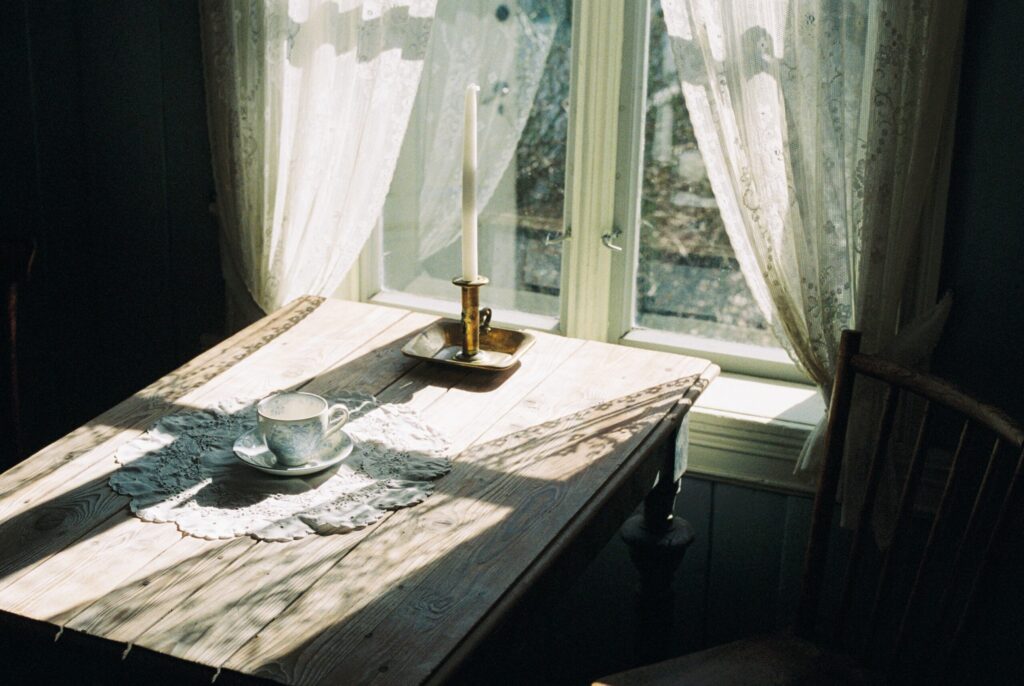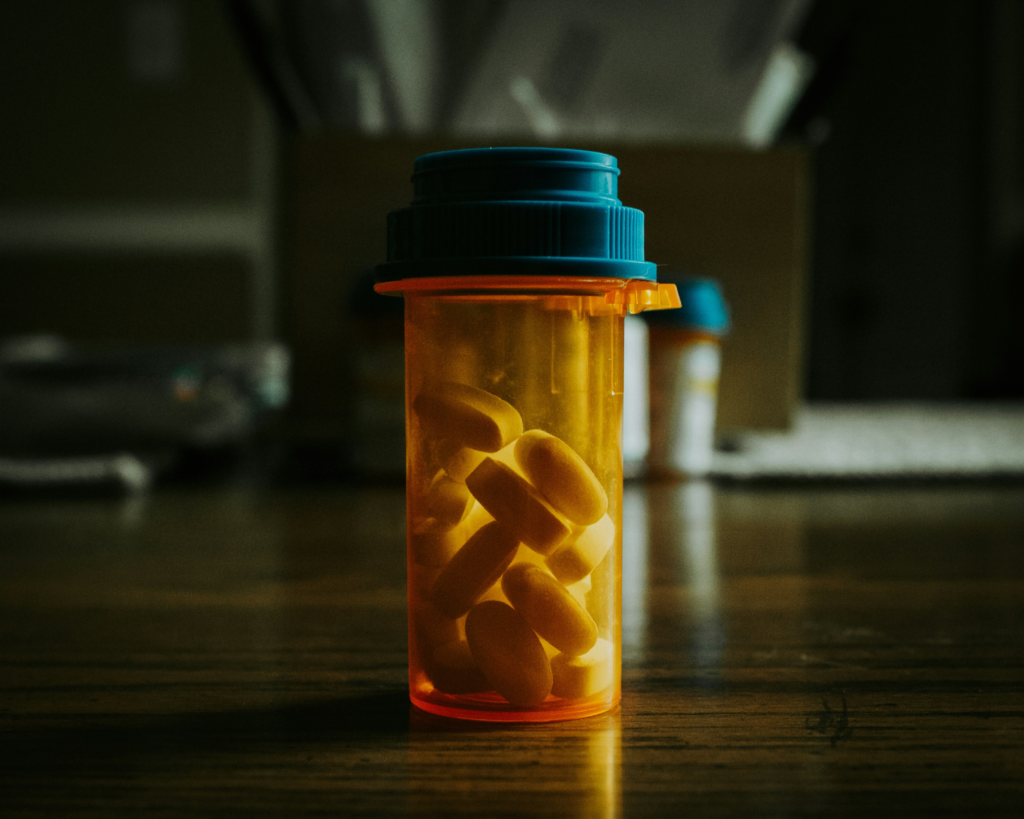Only Bones and No Poetry: On Being an Artist with Anxiety

I sometimes pick my fingers until they bleed. It’s one of the reasons why I choose not to write my stories by hand—it both hurts to hold a pen against my frayed skin and leaves streaks and smudges of copper on the page.
The cuticles are the easiest part of the body to manipulate and change, according to a handful of online articles I’ve read. Psychologists believe it’s about control and the desperate urge to fix perceived flaws in our own flesh. I pick to remove the loose ribbons of skin because they look unclean. I want my hands to be neat and pretty, but as soon as I start peeling, another stray layer breaks free, and before I know it, I’m wrapping tissues around my fingers to stop the bleeding.
I pick my lip, too—that part in the middle where the imprint of my teeth has turned the skin hard and dry like wax paper. I pick to remove the crusty coating, not to hurt myself. But I hurt myself, anyway. My bottom lip is thick and full and almost always covered in lipstick, so no one can see the red, raw pockets of missing flesh.
I’ve been told picking is a form of self-abuse, though it’s never seemed that way to me. Half the time, I don’t notice I’m doing it until it’s done. I’m also told it is a “nervous habit,” something I do when I’m anxious—which is all the time.
As I write this, three of my fingers are raw and sore. Only one bled, but the others didn’t, so I consider that a win. It could be—and has been—much worse. I remember sitting in a ninety-minute psychology seminar as an undergrad, alternating between taking notes and skinning my fingers. The girl sitting next to me gave me a sympathetic smile, and later, when we were packing our bags, she asked me, gently, as though I were a child, “Doesn’t that hurt?”
I looked down at my hands and laughed. Folding my fingers into my palms, I shook my head.
“Not really,” I said. “Looks worse than it feels.”
All of my fingers were bleeding that day.
I think about picking when I sit down to write my stories. I think about how much better I should be as a writer by now. I think about the books I should have already published but haven’t; the literary circles I should be a part of but am not. Sometimes I only write to spite my anxiety—because I want to be better, and the only way I can think to accomplish that is by pretending. It’s what I’ve done my whole life—make up a game to make things easier. Make up a character who can handle all the bad stuff that I’m too weak to deal with myself. Make up a story I can tell people about why and how and what is happening to me, rather than ever admitting I may have a mental health problem.
I like to think about these streams of thought as the loose and tender strips of skin along my cuticles. I pick my fingers to get rid of the rough edges of my own body; I write stories to get rid of the rough edges inside my mind. In both cases, I almost always end up making myself bleed.
I wonder about the people who think anxiety and depression are romantic—that suffering for our art somehow launches us into the presence of past literary greats. Don’t get me wrong; I do want to be a great writer, despite the churning in my gut that reminds me, every day, that I am irrelevant. But if you offered me a magic pill tomorrow that would strip away my anxiety the same way I strip away at the skin of my hands and the electric tissue inside my head, I would take it in a heartbeat. Because anxiety does not make me write better—anxiety makes me write doubtfully. It makes me write impatiently. It makes me write fearfully. It steals the joy right out of my sentences and leaves everything I write looking, to me, like a bloody nail bed.
There’s a long history of the romanticization of suffering when it comes to art—the starving artist, the tortured writer, the broke and struggling singer. Every creation weighed and measured by the misery of its creator. Alarmingly, a lot of these beliefs and misconceptions have been fostered and fueled in the very artistic fields I am attempting to cull, by the artists and creators themselves who believe, perhaps erroneously, that their unhappiness somehow gives them a poetic edge. Aldous Huxley, author of one of the original and quintessential dystopian novels Brave New World, famously stated, “Perhaps it’s good for one to suffer. Can an artist do anything if he’s happy? Would he ever want to do anything? What is art, after all, but a protest against the horrible inclemency of life?”
I adore Brave New World. It was one of the first novels that introduced me to the delicate beauty of language, and all the meaningful and compelling ways it can be used to inspire, interrogate, manipulate, and even destroy. But I do not agree with Huxley’s stance on artistic suffering. Why do we as artists feel like we can only reach true success if we’ve first broken our bones to get there? Why does it seem that the world only values our contributions if they’re soaked in blood and tears?
I would rather live in a world with more books by Sylvia Plath, more paintings by Van Gogh, and more music by Kurt Cobain than one where being celebrated for your artistic genius means suffering needlessly and then dying early. I can’t believe—I won’t believe—that these artistic giants were only artists because they struggled with mental health; that their deaths were the inevitable result of a life dedicated to the pursuit of beauty and complexity in this grayscale society; that if you stripped them of their anguish and dug down through the soft, tender flesh that made them human, you’d find only bones and no poetry. There has got to be something else beneath all that pain and anxiety and delicate human ego—some magical cocktail of stardust and dopamine that flows through the veins of every artist and inspires them to continue creating.
I sometimes close my eyes and picture a different, gentler version of myself. This me wears confidence like a dress, willowy and soft against my skin. This me holds my pen between smooth, undamaged fingers and writes stories by hand that look good in every possible light. This me knows that my artistic existence is not contingent upon the state of my fluctuating mental health—and that there is no more worth in my suffering than there is in my joy.
This me is a writer because every version of me is a writer. And I don’t have to suffer to prove that.
I write lies all the time. I write elaborate, fantastical, lyrical lies—lies that transport, lies that entertain, lies that transform. I write the lies I wish other people would tell me.
Turns out, I write those kinds of truths as well.
Because when I look at my hands, I don’t see hard work and determination. I don’t see the caricature of myself slogging through shit, fighting, barehanded and bloody-knuckled against the raging demons inside my head. There is no artwork in this; nothing I can say to make my anxiety appear generative, worthwhile, or necessary.
I only see bloody fingers.
And that is all they will ever be.


